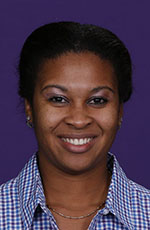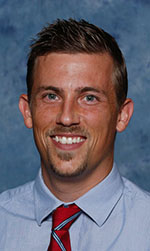By Mark Heller
GCU News Bureau
The juxtaposition between discussing “living by not eating bread alone” while eating sandwiches wasn’t lost on the audience Friday at the Integration of Faith, Learning and Work event for Grand Canyon University faculty, but this dialogue wasn’t about carbs. Or even food.
The first of six IFLW “Lunch and Learn” speaker series events during the 2016-17 school year revolved around Biblical and philosophical concepts of bread: materialistic and often unfulfilling pursuits in life.

College of Theology Dean Dr. Jason Hiles referenced Luke 4: 3-4, in which Jesus fasted for 40 days only to be confronted by the devil, who asked Him to turn a stone into bread. Jesus refused: “It is written, man shall not live by bread alone.”
Instead, Hiles said, conversations, relationships, discussions, words and actions sustain happy, healthy and meaningful lives.
Dr. Moronke Oke from the Colangelo College of Business spoke of the relationship between our pursuits of “bread” in the business world. She used a “Pyramid of Priorities” to explain how many modern businesses and our individual professional goals are misaligned. Position, profit and performance are atop the pyramid, with purpose, principles and people at the bottom.
“It should be the other way around,” she said. “It should start with people. … If you love thy neighbor as yourself, you’ll still achieve good results.”

Joshua Danaher from the College of Humanities and Social Sciences spoke of ways to integrate spiritual life and communications into our daily interactions and actions.
Danaher said being authentic in conversations and interactions and in your daily actions can challenge you and others by bringing out your true self, thoughts and feelings. This kind of transparency “helps us be critical of what we are, what we know and our world around us.
“Cheap talk is very expensive,” he said.
A four-person panel of GCU teachers and students then shared their experiences, ranging from collaborations with students, to getting involved, to helping find your own “community.” Both self-reflection and authentic conversations help open the mind and prioritize what is truly important in work and life.

Hiles noted that “living by bread alone” often leads to focusing on the “mundane, busyness and creates anxiety.” The lure of many rewards often leaves us ultimately unsatisfied, creates needless competition and reinforces a desire for more that can lead to restlessness.
“Not living by bread alone allows us to focus on other things and pursue something better,” he said.
Hiles then posed two questions to the capacity crowd:
- Are you tempted at any points by the “bread alone” approach to life?
- If so, what is the “bread alone” lifestyle that presents the strongest temptations?
“Are we driven by titles, success and money, or what really matters?” Oke said. “It’s up to us to be the master of our own time and lives, or someone will do it for us.”
Contact Mark Heller at (602) 639-7516 or [email protected]



































































